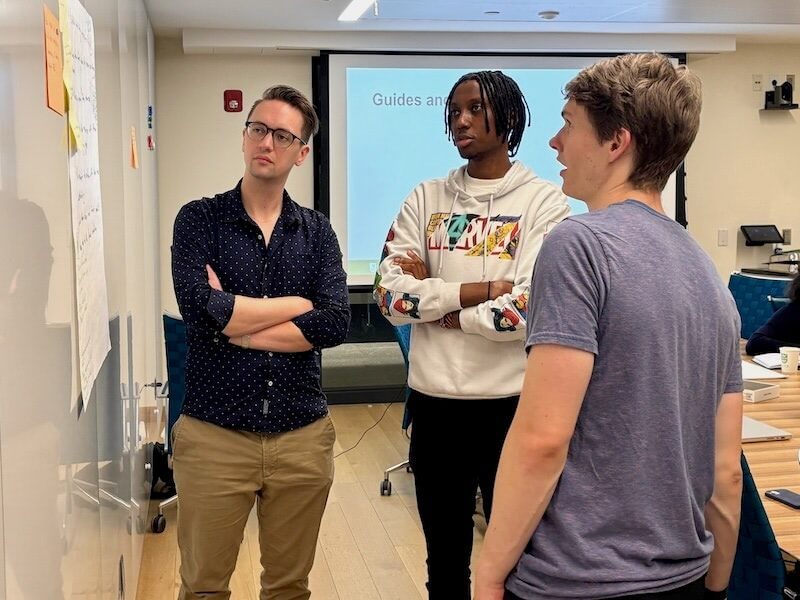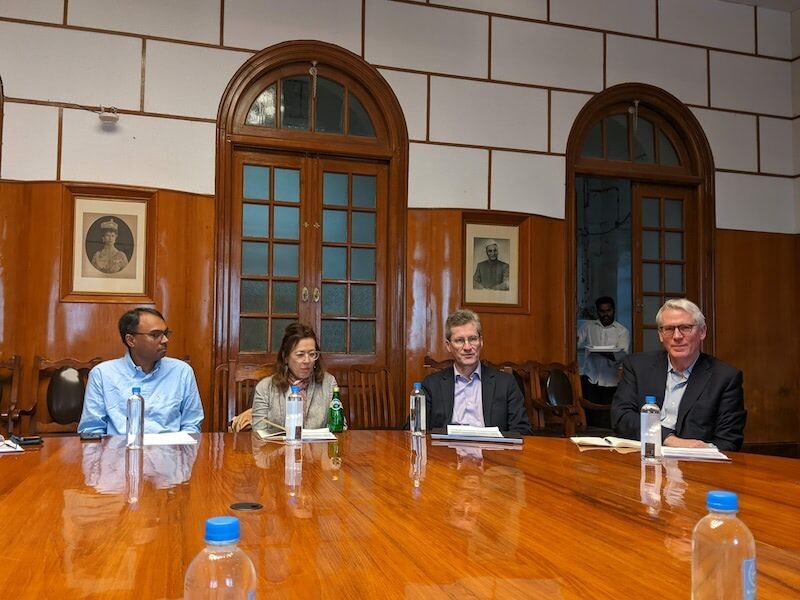- Undergraduate
Bachelor's Degrees
Bachelor of ArtsBachelor of EngineeringDual-Degree ProgramUndergraduate AdmissionsUndergraduate Experience
- Graduate
Graduate Experience
- Research
- Entrepreneurship
- Community
- About
-
Search

Major Grant Funds Mentor Program to Boost Degrees in Engineering
The Sherman Fairchild Foundation recently awarded a $12.5 million grant to advance near-peer mentoring programs including Dartmouth Emerging Engineers.

Dartmouth and Indian Institute of Science Forge Partnership
The partnership brings together two premier institutions renowned for their commitment to interdisciplinary studies and innovation.

Dartmouth Engineering's Eric Fossum Elected to National Academy of Engineering Council
Beginning July 1, the John H. Krehbiel Sr. Professor for Emerging Technologies will serve a three-year term on the governing body of one of the nation's most respected engineering organizations.

Engineering Students Awarded Goldwater Fellowships
Calista Adler '26 and John Chin '27 are two of five Dartmouth undergraduates to receive the awards supporting the next generation of research leaders in STEM.
Doctoral Degrees
Master's Degrees
Bachelor's Degrees
Research Quick Takes

Jun 05, 2025
Improving Healthcare Access
Professor Vikrant Vaze is a co-author of "A novel outreach approach for identification of familial hypercholesterolemia: Interview-based formative evaluation to improve healthcare access and quality" published in PEC Innovation. "This was a collaborative effort with folks from DH and Geisel, as well as Family Heart Foundation. The study is aimed at designing and evaluating direct outreach and referral to specialty care for patients with an elevated risk of FH identified through a machine learning model and expert review of the electronic record in a rural US health system. It's an excellent human-centered design thinking exercise and it yielded a great deal of success," said Vaze.

May 22, 2025
Cyber Defense x2
Professor Peter Chin's Learning, Intelligence + Singal Processing (LISP) lab had two papers accepted at the Reinforcement Learning Conference (RLC): "Hierarchical Multi-agent Reinforcement Learning for Cyber Network Defense" and "Quantitative Resilience Modeling for Autonomous Cyber Defense." Said Chin, "Both papers are part of the outcome of the four-year DARPA research project called CASTLE: Cyber Agents for Security Testing and Learning Environments that LISP lab has been working on to develop game-theoretic reinforcement learning agents that can outsmart potential cyber adversaries in an enterprise-level network."

May 22, 2025
Most Read of All Time
Professor Vikrant Vaze is a co-author of “Operational Research: methods and applications” which recently became the most read article of all time in the Journal of the Operational Research Society—the oldest journal in the field of operations research. "This is arguably the first prominent article to provide a comprehensive overview of the state-of-the-art in operations research [OR], from both a methodological and from an applications standpoint. It is meant to serve as the first point of reference for OR academics, researchers, students and practitioners alike," said Vaze.

May 01, 2025
Understanding AI Behavior
PhD students Clement Nyanhongo '17 Th'18 and Bruno Miranda Henrique, and Professor Gene Santos co-authored "Reward Distance Comparisons Under Transition Sparsity" published in Transactions on Machine Learning Research. "Traditional reward comparison methods rely on behavioral simulations, which can be costly and pose safety risks. Our method is specifically designed to operate in more realistic and practical settings, recognizing real-world constraints, and outperforms existing approaches across a range of domains," says Santos.

